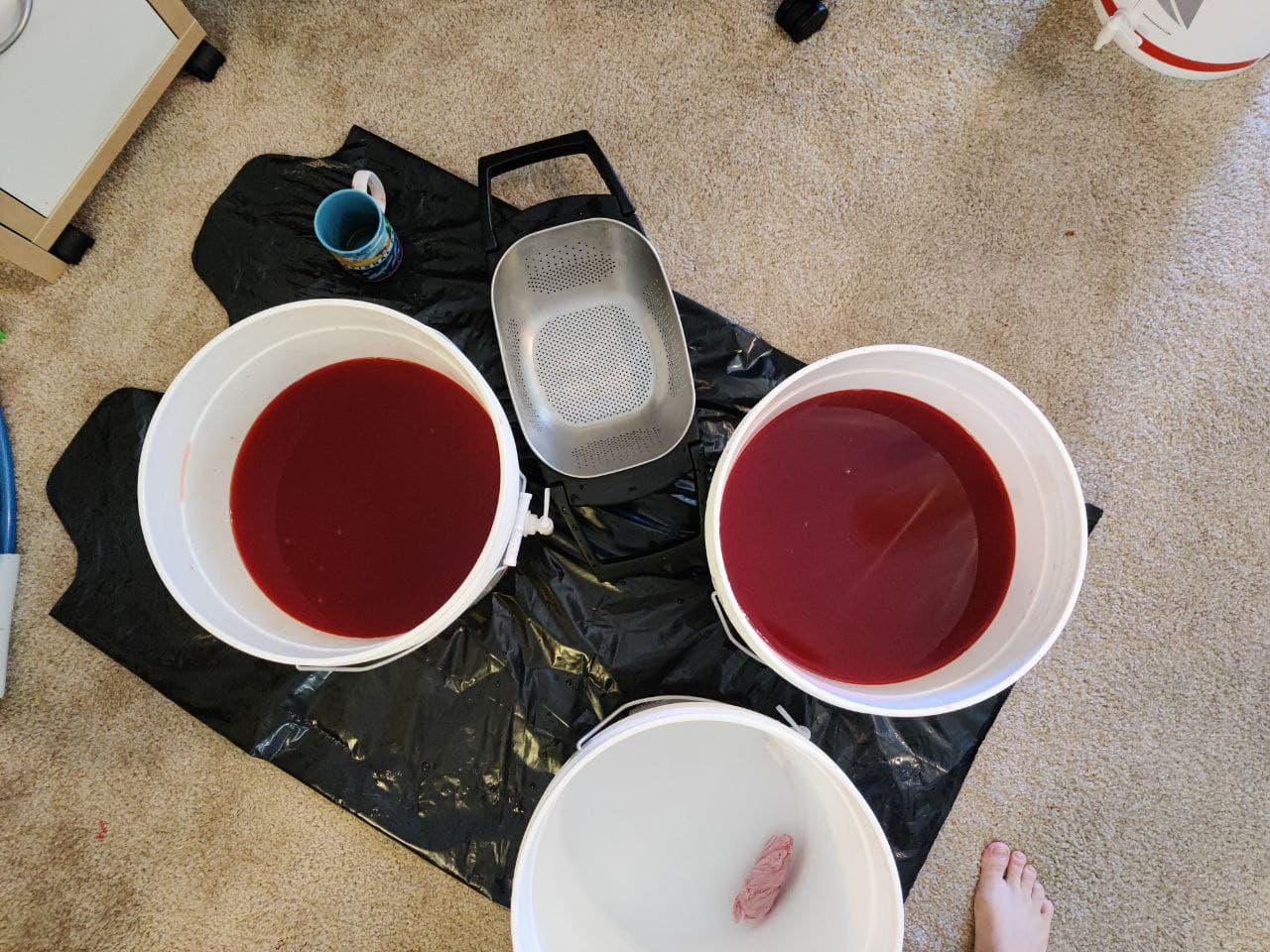I'm making Strawberry wine by following this guy's recipe:
https://youtu.be/tdqRrdihr3c [Embed]
His recipe to make 2 gal of finished product is as follows:
9 lb strawberries
6.61 lb of sugar/dextrose
8L boiling water
4 tsp Pectic enzyme in .5 cup of warm water
Yeast and yeast nutrient
.25 tsp tannin and 2 tsp citric acid dissolved in a glass of warm water
I multiplied the recipe by a factor of 3 to make 6 gal of wine. After crushing ~27 lbs of strawberries and adding 22 lb of dextrose with 24 L of boiling water, I removed the solids from the brew and am left with 8.25 gal of mixture.
As I was trying to make 6 gal, this is almost 50% too much yield. Can I just continue with the quantities multiplied by 3 or do I need to tweak some numbers after winding up with more mixture than I should have?
I haven't added yeast or anything yet, just put the pectic enzyme in a little bit ago and am letting it sit for 24 hours before proceeding.

Also just took a gravity reading from both buckets and got 1.105 for one and 1.110 for the other.
https://youtu.be/tdqRrdihr3c [Embed]
His recipe to make 2 gal of finished product is as follows:
9 lb strawberries
6.61 lb of sugar/dextrose
8L boiling water
4 tsp Pectic enzyme in .5 cup of warm water
Yeast and yeast nutrient
.25 tsp tannin and 2 tsp citric acid dissolved in a glass of warm water
I multiplied the recipe by a factor of 3 to make 6 gal of wine. After crushing ~27 lbs of strawberries and adding 22 lb of dextrose with 24 L of boiling water, I removed the solids from the brew and am left with 8.25 gal of mixture.
As I was trying to make 6 gal, this is almost 50% too much yield. Can I just continue with the quantities multiplied by 3 or do I need to tweak some numbers after winding up with more mixture than I should have?
I haven't added yeast or anything yet, just put the pectic enzyme in a little bit ago and am letting it sit for 24 hours before proceeding.

Also just took a gravity reading from both buckets and got 1.105 for one and 1.110 for the other.
Last edited:


